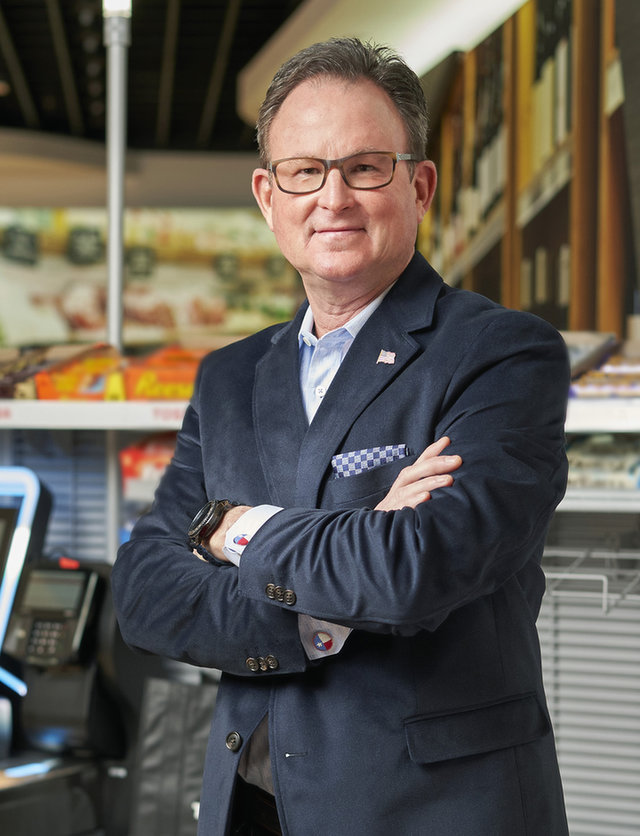
Leading in a VUCA World: Why Voice of the Customer (VoC) Matters
Consumer behaviors are changing, and general economic instability and other factors contribute to the VUCA world of today, meaning an environment that is volatile, uncertain, complex, and ambiguous. Retailers must intensely watch how consumers respond to store experiences while observing market challenges like supply chain issues, high storage, excess inventory, lower revenue, reduced margins, and disrupted cash flow to identify innovative ways to manage the impact to their business.
Business leaders watch the natural economic fluctuation to weather the storm. The voice of the customer drives our business at Toshiba Global Commerce Solutions. Based on what our clients tell us, we see several factors that will continue to propel tech innovation to transform retail even in the face of inflation, including Automation, Digital Payments, Returns, Phygital Store, and Loss Prevention.
Retailers must intensely watch how consumers respond to store experiences while observing market challenges to identify innovative ways to manage the impact to their business
- I love meeting with our retail customers. They say that automation has helped navigate labor challenges as people either left the workforce or moved into other industries because of the pandemic. In July 2022, 4.2 million people quit their job, and women in the labor force hit a 33-year low. Industry examples of automation abound, from McDonald’s automating drive-through lanes with AI to brands like Starbucks and Hudson News teaming with Amazon for Grab and Go. Grocers are adopting ‘smart’ tools to support enhanced automation. Technologies like Computer Vision, AI, and Machine Learning do everything from managing self-checkout to capturing store data for an improved shopping experience and supporting loss prevention measures. Advancements in loyalty and promotions can also help retailers in areas like excess inventory and margins.
- Consumers have varying habits across geographies, but the trend of digital payments is gaining momentum globally. It is the future of retail transactions as consumers seek simpler ways to complete their store purchases. Preferences also differ across generations, but overall, digital wallets or contactless cards are becoming widely accepted because of the speed of use and convenience. We focus on adapting to the needs of our customers and geographies to meet those needs.
- How many people buy variations of a product to return unwanted items? This phenomenon equals risk for retailers by driving high storage, excess inventory, and reduced margins. National Retail Federation reported approximately $761 billion in retail returns in 2021, with a significant percentage ending up in landfills annually. The opportunity is ripe for technologies that support navigating a more efficient returns landscape.
- The ‘phygital store’ is the future, with more retailers leveraging the benefits of both physical and digital experiences. Forrester predicts that 72% of US retail is moving toward physical by 2024 because it affords shoppers the advantage of store experience and immediate satisfaction.
- Our customers tell us that loss prevention is an increasing issue, especially during times of instability. COVID, labor shortages, and economic stress have increased shrink. Sources like NRF and Jack L. Hayes International report that in 2019 there were $68.9 billion in losses, rising to $94.5 billion in losses by 2021. Because of the increased risk, retailers have upped their investment technologies to manage loss prevention risk like computer vision cameras, RFID, self-service lockers, facial recognition technology, and self-checkout supported by video analytics.
With more than 50 years of expertise and innovation in the retail solutions industry, Toshiba Global Commerce Solutions is a valued partner of many essential retailers globally. We work with customers to address their challenges, and we do this by focusing on the voice of the customer. By listening first, we can better understand how to support retailers through innovative technologies that meet changing consumer and market behaviors, which may vary widely across countries and cultures.




Ricardo Lobo is the President and Chief Executive Officer of Beontag. In this capacity, Ricardo oversees the strategic direction of Beontag in creating value of its distinctive capabilities, innovative portfolio, and customer and stakeholder relationship.
Prior to joining Beontag, Ricardo had more than 11 years of experience in the financial market at BTG Pactual, the largest investment bank of Latin America, leading multiple companies’ business strategy in Private Equity. Early in his career, he served 3 years at Procter&Gamble, being responsible for product strategy, consumer research and product concept and development.
Ricardo Lobo holds a Bachelor degree in Chemical Engineering from The University of Sao Paulo, a Masters from Chimie Paris Tech University and a Business MBA from Harvard University.